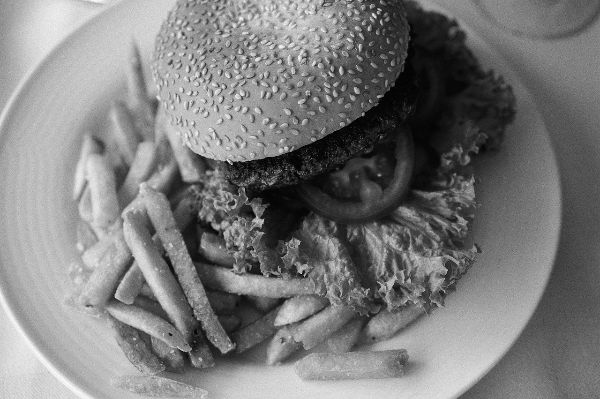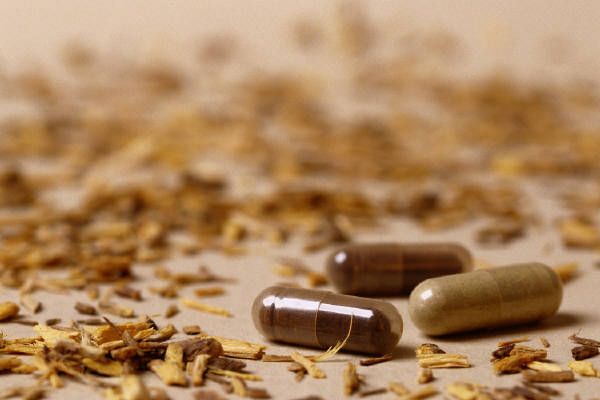What Does
Healthy Eating
Even Mean?
Posted on February 7th, 2014 by Dr. Andrea Hoglen

As a doctor, this is a question I am asked often. If you asked that same question to a dozen different nutritional doctors, I'm sure you would get a dozen different answers, or in the very least you'd get a dozen different variations on the same answer.
Why?
Because nutrition is both incredibly simple and complicated at the same time. Sure, there are many nutrition rules that apply to everyone, but in reality, each diet plan I recommend is custom-fit to each individual patient.
Should you eat dairy? Should you eat eggs? Should you eat nuts or lentils or legumes?
Most of these are things which should be decided on a case by case basis. That said, I'd like to let you all know what healthy eating means to me.
Healthy Eating Rules for Everyone
I have heard the phrase "everything in moderation" enough to make me crazy. It's a great concept that relies on one solid principle:
actually knowing what moderation is.
Do you know how many grams of carbohydrates you eat per day?
Do you know how many you are supposed to eat?
The average elite level athlete needs anywhere from 100-200 grams of carbohydrates per day to maintain their high level of activity.
Any idea where you fall?
Well, the AVERAGE American eats close to 500 grams of carbohydrates per day.
That is 5 times what your elite athlete needs and almost 7 times what the average person should be eating "in moderation".
Excess carbohydrates play a huge role in the function of our mind and body. Diabetes, obesity, high cholesterol, and even inflammatory conditions are all exacerbated by excessive carb intake.
Sugar is by far the most dangerous piece of the puzzle. I've talked before about the dangers of sugar and its effect on our mental acuity, but if you have the time, you should really check out The Bitter Truth lecture by Dr. Robert Lustig, especially the part about our blood cholesterol levels.
We've spent years avoiding fats and eating "healthy" whole grains, only to have worse cholesterol and heart disease than ever before in human history. I eat eggs and healthy fats on a daily basis, while avoiding sugar and starchy carbs. Once you understand how sugar is killing you, it should be much easier to quit. That said, remember that sugar is addictive. If you quit sugar, be prepared to crave it for a solid week or more, until your body gets past the addiction.
With the understanding that sugars and simple carbohydrates are bad for us, where do we go from there?
Well, avoiding the four cardinal grains is a great start. Watch out for Corn, Rice, Oats, and Wheat (CROW) in your meals. All of these grains add carbs without nutrient density. Even the whole grains. Whole wheat and Brown Rice contain just marginally more nutrients than their plain white counterparts, but with the same amount of carbohydrates.
You're better off avoiding the grains entirely. With many people pursuing a Gluten-Free Diet, some gluten-free people are actually eating more carbs in the form of corn, oats, and rice. All grains have carbs, even if they don't have gluten, so be conscious about carb content and not just gluten.
I also advise being careful about eating starchy foods like potatoes, while also avoiding chemical-laden artificial sweeteners like aspartame and Splenda. (I prefer stevia as a natural sweetener.)
Carbohydrates are also found in fruits and vegetables, though the majority of this is healthy fiber. I strongly encourage my patients to eat plenty of veggies, along with some fruits. An idea ratio is 1 serving of fruit for every 2 servings of vegetables. Fruits (including tomatoes) tend to have a higher content of the natural sweetener fructose. In their raw form, the fructose is balanced by fiber content, water content, and nutrients. If you drink fruit juice, you take away the fiber, and if your fruit is dried, you've removed the water content, so be cautious of these as they have a higher impact on blood sugar.
The Blood Sugar Balancing Act
I give hour-long lectures on how to maintain a healthy blood sugar, but I will try to keep things condensed here.
By this point, you realize that sugar is bad for you. You've probably also figured out that carbs aren't great either, but let's talk about why.
Carbs get broken down into sugars in your digestive system, so that when they hit the blood stream, they are sugars. How quickly this process happens is often referenced as the Glycemic Index (GI) of a food. Foods with a high GI are broken down quickly into sugars, and hit the blood stream with a "spike" very similar to that of plain old sugar. Foods with a lower GI take more time to digest and break down and reach the blood stream, meaning they affect the blood sugar minimally.
Foods with high protein, fiber, and fats will tend to have a lower GI value, and therefore have less of an impact on your blood sugar levels. Diet systems like the South Beach Diet and the Nutrisystem diet are based on the science behind the Glycemic Index. These systems work for many people by reducing blood sugar spikes which cause our bodies to store fat.
That said, these diets often include chemical-laden processed foods and don't always eliminate sugars completely. Diets like Atkins , Dukan, and Keto strive to completely reduce carbohydrate intake, eliminating blood sugar spikes and forcing the body to burn fats instead. I prefer these diet plans to many others, because they force you to avoid sugar completely.
The Paleo Diet (or paleolithic diet) eliminates carbs from grains and starches, but still allows things like honey, maple syrup, and dried fruits - all of which are high in Glycemic Index. I tend to eat closest to the paleo diet, personally, because I choose to avoid all grains. Though I prefer to avoid the high glycemic items (honey, maple syrup), and I also choose to eat high-protein dairy, which is technically not allowed with the Paleo plan.
Eating Healthy for Weight Loss
For a long time, we were told that all you had to do was count calories.
Eat whole grains and veggies. Avoid fats. We'd be thinner and healthier for it.
Except, we're not. Anyone who has ever counted calories will tell you that you can drink a soda and eat a cookie and burn through your entire day's allotment of calories in less than 5 minutes. You'll have spiked your blood sugar, caused a massive fat storage spike, and you'll be starving again in 10 minutes, but you counted those calories.
So we can start by just count calories, but we still need to be aware of our portion sizes and the food choices we're making. On average, we eat more today in ALL of our portion sizes than we ever did in the past, Dr. Lustig talks about it in his lecture, and the CDC has tried to make us aware as well.
Counting calories is a tool that can help you better adapt your lifestyle to what portion sizes are supposed to be, as opposed to what our restaurants and packaging fools us into thinking. Most people who report weight loss from counting calories were successful because they learned to substitute high fiber foods for sugary disasters.
Every individual is different when it comes to weight loss, because every body is different. If your body is obese but malnourished, your body may resist weight loss as it desperately clings to any nutrient it can get. If your body is toxic from chemicals, alcohol, or pharmaceuticals, your body may be insulating itself against the toxic effect using fat cells.
There are dozens of reasons why people can't and don't lose weight, and it is best to discuss those with your qualified nutritional doctor.
In general, I advise my weight loss patients to make a diary of everything they eat. Logging what you eat makes you accountable to yourself, and that alone helps many people to eat better. From there, I pay close attention to their sugars, carbs, proteins, and vegetables.
Cutting down on carbs while increasing vegetables and proteins is a great start to the equation, but as you journey through weight loss, you have to perfect the ratios. I encourage my patients to exercise for 20-30 minutes daily, even if it is just walking. The research supports it.
I encourage my patients to eat lean protein, such as chicken or fish. Some do well with 30 grams of protein daily, and others do better with 100 or more grams of protein to help build muscle in place of fat.
Putting it All Together
I strongly recommend that every person who is looking to eat healthier consult a nutritional doctor before starting any new dietary lifestyle.
That said, most of us in the field can agree on a few key points.
Eat less sugar. Drink less soda. Eat fewer cookies, cakes, and candies.
Eat fewer processed foods. The chemicals and carbs that have been added to make these foods palatable are killing us, slowly.
Eat more vegetables. Dense with both nutrients and fiber content, vegetables make up the base of my personal food pyramid.
Eat lean protein. Chicken and fish are good for almost everyone. Nuts and high-protein dairy are excellent if you don’t have an allergy or sensitivity to them. Even Lean, Grass-Fed Beef is a good choice for many people.
Avoid grains and starchy carbs. Cut out the grains (Corn, Rice, Oats, and Wheat) and avoid starchy potatoes.
Eat healthy fats. Things like olive oil, grape seed oil, flax oil, coconut oil, and organic butter. We need good fats in our bodies to keep our cells strong and to make many hormones and neurotransmitters.

We all know that sugar might be delicious, but it isn't good for our bodies. Learn more about the real consequences of refined sugar consumption.

Information released by the CDC shows how our portion sized have grown over the course of time.
Find out how this might be affecting your health and wellness, and what you can do about it!

Looking to cut down on caffeine or manage how much you are really addicted to?
Check out this chart showing the amount of caffeine in beverages!

Did you know that your body needs b-vitamins to turn food into energy and to process stress?
Learn more about how and why these nutrients are essential for you!
Share this Article!